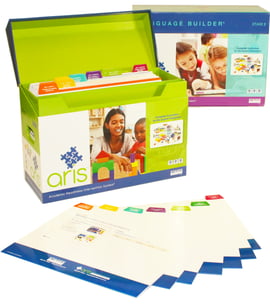[ad_1]
Social-Emotional Learning (SEL) and whole child development, often used synonymously, have huge implications for children of all ages. Described as the process of developing the knowledge, mindsets, and behaviors needed to manage and express emotions, interact positively with others, make responsible decisions, and set and achieve goals, SEL has become one of the primary topics of discussion in education. Policymakers and practitioners increasingly recognize SEL as an essential, though often lacking, component of formal schooling. As interest in SEL expands, new research clarifies our understanding of students’ social and emotional development and its connection to academic learning.
Why SEL?
The importance of SEL rests in developing the “whole child” understanding that in order to access the educational content, we must also consider and develop students’ social-emotional skills. Nationwide, school districts and research confirm the link between SEL and academic achievement. Schools that holistically develop students’ SEL see increased graduation rates, higher academic performance, and improved mental and physical health.[i]
More specifically, SEL that is embedded into curriculum and instruction can be especially beneficial for students with autism. Many students with autism may have difficulty with social cognition skills, things such as self-awareness, self-management, social awareness, emotional health and well-being. Research shows that if students with autism are not able to develop the appropriate social cognition skills, then their post-school outcomes can be bleak, leading to things like more social isolation, unemployment, or mental health problems (Ivy Mount Outreach, “What is Social Emotional Learning?”).
SEL and Whole Child Development within ARIS
 ARIS, specifically designed for students with moderate to severe Autism Spectrum Disorders, is anchored in the principles of Applied Behavior Analysis (ABA). ARIS integrates the Language Builder Picture Card sets with 3D manipulatives, detailed lesson plans, black-line masters for different activity sheets, a system for record keeping, and custom home communication forms. ARIS lessons contain seven categories, one of which is social emotional.The need for curriculum and instruction that has a heavy emphasis on social emotional learning is crucial for all students, but especially for students with autism. While many schools and school districts are struggling to embed social emotional learning into academic standards, STAGES has found a way to integrate social emotional learning into their comprehensive early intervention program specifically for students with autism, The Language Builder: Academic Readiness Intervention System (ARIS). Recognizing the importance of social emotional learning and whole child development for students with autism, domains such as academic communication, social-emotional, physical, self-help, and functional skills are included in the ARIS content lessons and content categories.
ARIS, specifically designed for students with moderate to severe Autism Spectrum Disorders, is anchored in the principles of Applied Behavior Analysis (ABA). ARIS integrates the Language Builder Picture Card sets with 3D manipulatives, detailed lesson plans, black-line masters for different activity sheets, a system for record keeping, and custom home communication forms. ARIS lessons contain seven categories, one of which is social emotional.The need for curriculum and instruction that has a heavy emphasis on social emotional learning is crucial for all students, but especially for students with autism. While many schools and school districts are struggling to embed social emotional learning into academic standards, STAGES has found a way to integrate social emotional learning into their comprehensive early intervention program specifically for students with autism, The Language Builder: Academic Readiness Intervention System (ARIS). Recognizing the importance of social emotional learning and whole child development for students with autism, domains such as academic communication, social-emotional, physical, self-help, and functional skills are included in the ARIS content lessons and content categories.
ARIS uses the five cognitive, affective, and behavioral competencies created by the Collaborative for Academic Social Emotional Learning (CASEL). ARIS social-emotional lessons address self-awareness, self-management, social awareness, relationship skills, and responsible decision making through independent play and work, group play and socialization, and emotional health and well-being.
ARIS lessons also include a focus on behavior management, as it provides tools that help reduce behavioral issues and encourage self-regulation skills. Finally, in addition to structured, ABA-based lessons, ARIS lessons include whole child lessons, facilitating peer-to-peer interaction, thereby providing more opportunities for students to work on developing their socioemotional skills. These content categories are comprehensive, including flashcards, realistic and wooden plastic figurines, wooden blogs, and a structured sequence guide which offers suggested sequences in which students may best progress through the lessons. With the detailed lesson plans and the structured system for record keeping, ARIS makes tracking students’ social-emotional development easy and effective.
ARIS and the Development of Essential Life Skills
Not only are students with autism getting prepared academically, but with ARIS’ Social-Emotional content category, students with autism are also getting essential life skills, skills that will lead to positive post-school outcomes. As the most complete early intervention program for students with autism, ARIS is designed with research in mind, by recognizing the significant link between social emotional learning and student achievement.
References:
[i] Newman, J., Dymnicki, A. B., Fergus, E., Weissberg, R. P., & Osher, D. (2018). Social and Emotional Learning Matters. In D. Osher, D. Moroney, & S. L. Williamson (Eds.), Creating safe, equitable, engaging schools: a comprehensive, evidence-based approach to supporting students. Cambridge, Massachusetts: Harvard Education Press.
“What is Social Emotional Learning?” Ivy Mount Outreach,
https://ivymountoutreach.org/for_professionals/social_emotional_learning_resources/what_is_social_motional_learning_. Accessed 15 November 2019.
